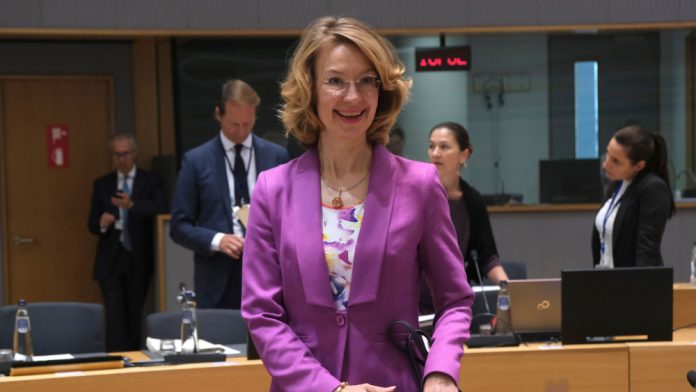After years of rejecting recommendations to shift from a monopoly to a multi-licence framework, the Finnish government is reportedly changing its tune.
Tytti Tuppurainen, Minister of Europe and Ownership Management, of the governing Social Democratic Party, disclosed in a recent interview to MTV Uutisten that a report examining a potential transition has been ‘hastened’.
Veikkaus has functioned as the state-backed gaming monopoly since 2017, offering gambling machines, lotteries and betting – a change to a multi-licence would enable other firms, including overseas operators, to enter the market, and the Finnish government to tax these companies.
The Minister remarked: “As the Minister of Ownership, I myself hastened to make a report on a possible transition to a multi-permit system. It is only a good thing that the opposition also shares this perception.
“There are parliamentary elections next spring, and it would be ideal that by the time of the government negotiations, we would have enough information to be able to make policies in the government negotiations.”
Demonstrating the cross-party support for the plans, Sari Multala, an MP for the opposition liberal-conservative National Coalition Party, told MTV Uutisten that ‘it is really important that such a speech’ has been made by the ruling party.
The MP added that an investigation into the transition can now start “as soon as possible” – as alluded to by Tuppurainen – but added that such a transition would require “extensive legislative changes”.
Multala also provided some insight into how the Finnish market would look under a multi-licence system, saying: “The lottery and gambling machines would remain within Veikkaus’ monopoly. It is easier to regulate when there is only one actor.
“On the online side, the regulation cannot achieve the goal of not playing out. Monitoring is easier in the physical world than online, stated Multala from the coalition’s line.”
Previous legislative and regulatory efforts in Finland have focused heavily on responsibility, such as an amendment to the Lotteries Act in 2021 which changed Veikkaus corporate structure to promote safer gambling and impose time limits on slot machine play.
The continued existence of the monopoly has faced criticism from consumers, politicians, general industry stakeholders and even Veikkaus’ own leadership at times.
Last year, CEO Olli Sarekoski and Deputy CEO Velipekka Nummikoski observed that despite the exclusivity of Finland’s licensing framework, the monopoly’s market share is roughly half, falling by five per cent year-on-year as of September 2022 to revenue of €515m.
This suggests that large numbers of Finnish customers are betting with overseas companies outside of the monopoly’s limits, and Veikkaus leadership has urged authorities to adopt a new structure to better tax these operators.
Previous recommendations for changes to the framework have been rejected by the SDP, but the government now seems to be changing its tone.
“Now the game companies from abroad operate as if in a wild grey zone. They are not subject to the same liability regulations that apply to Veikkaus’ playing,” Tuppurainen continued.
“The situation naturally causes gambling disadvantages and at the same time the taxman’s hand is twisted, which means that the profits from gambling also go past Finland to foreign countries.”









